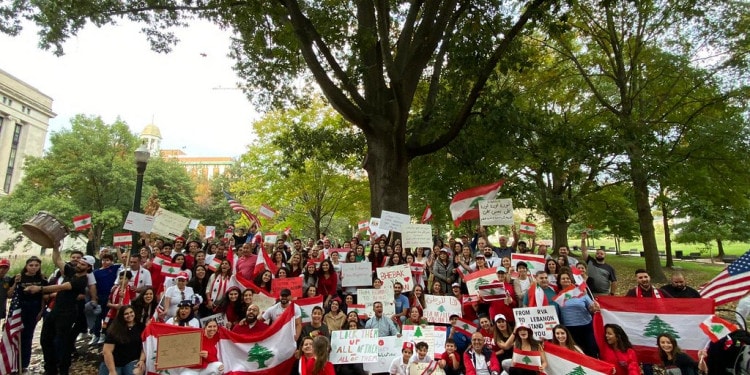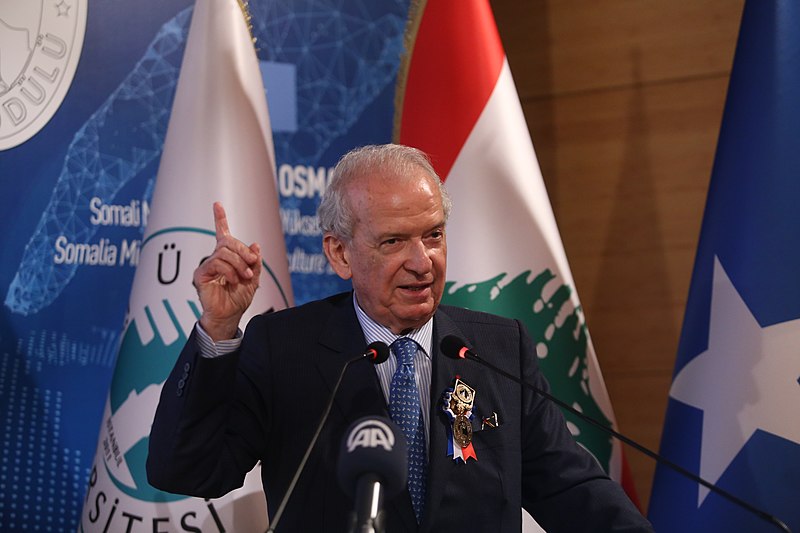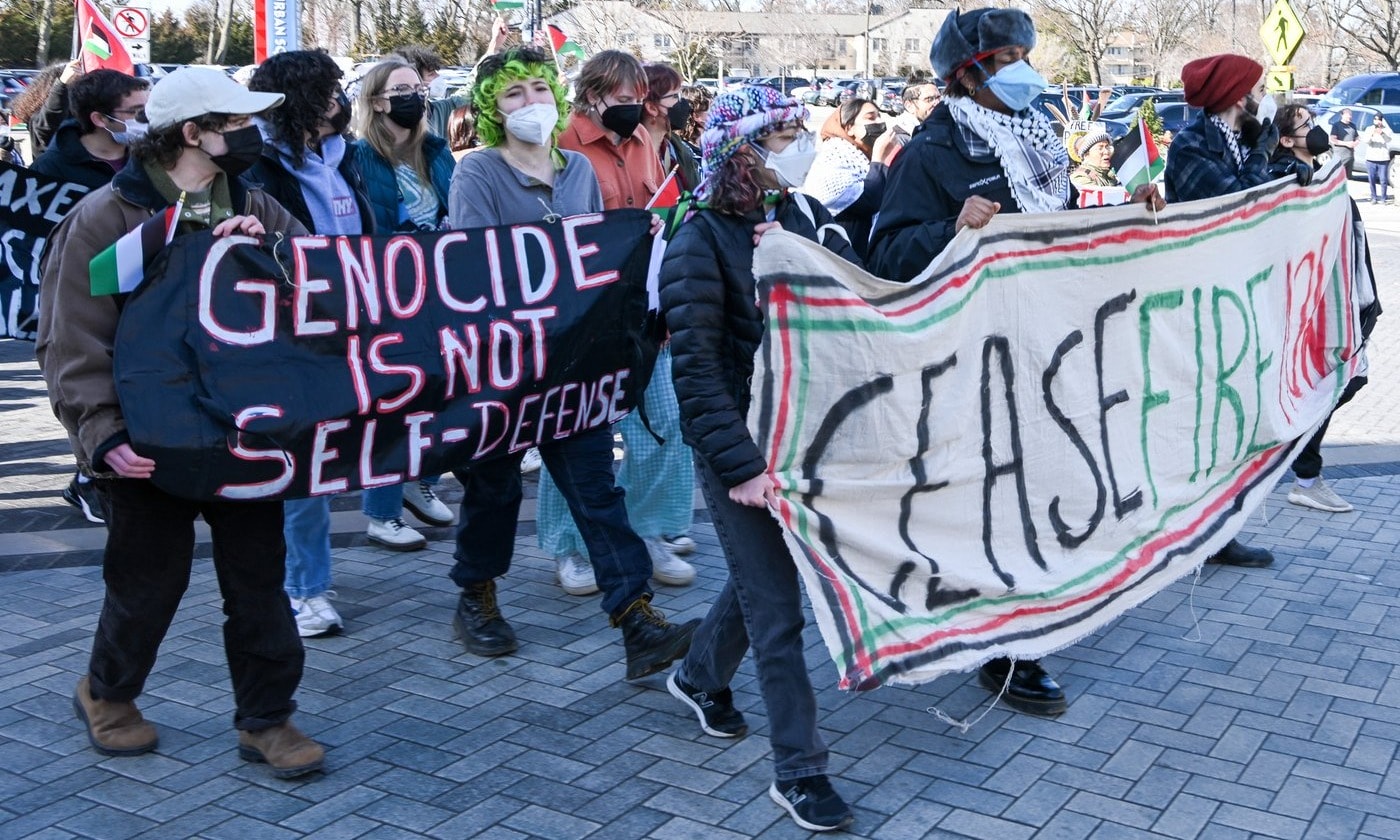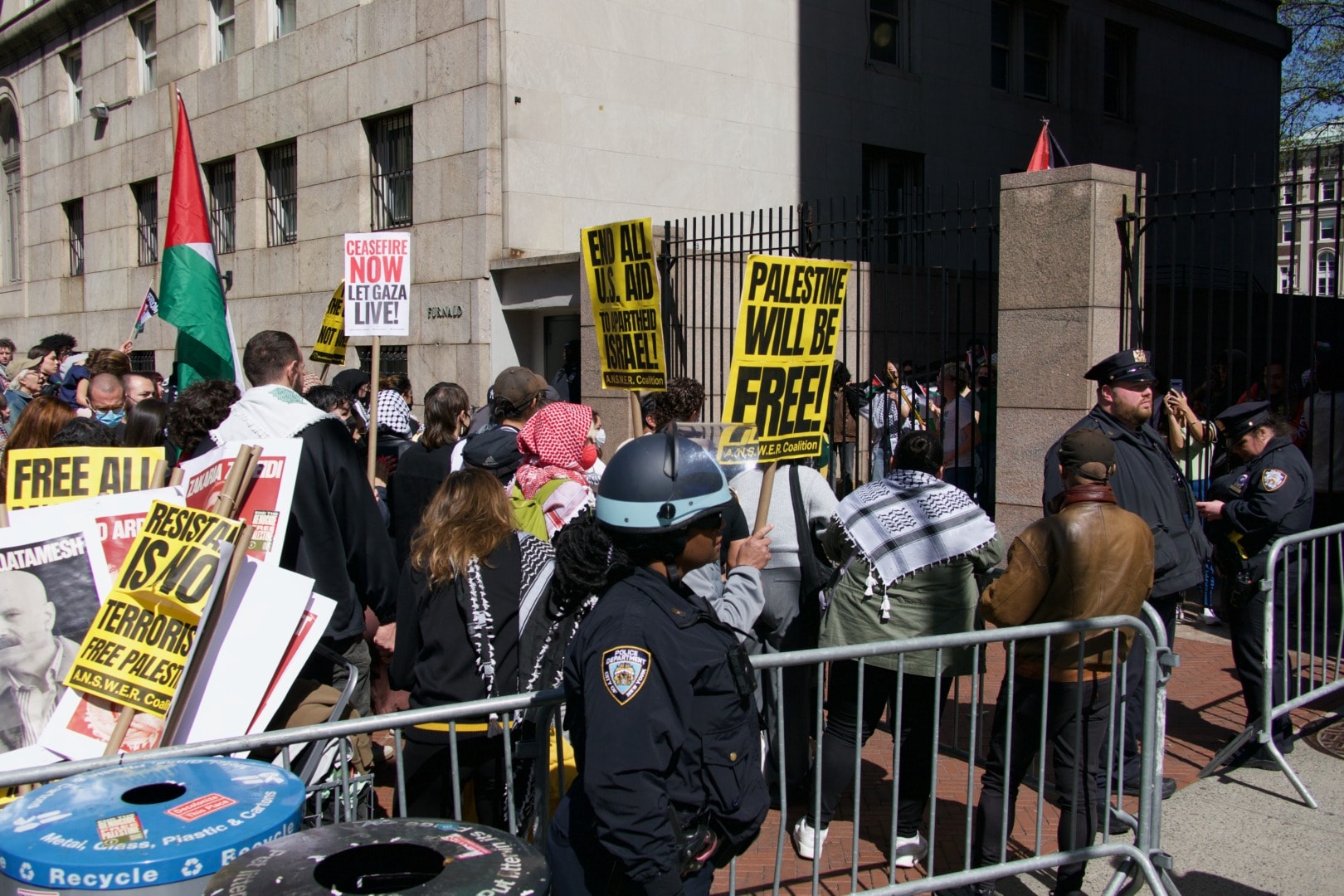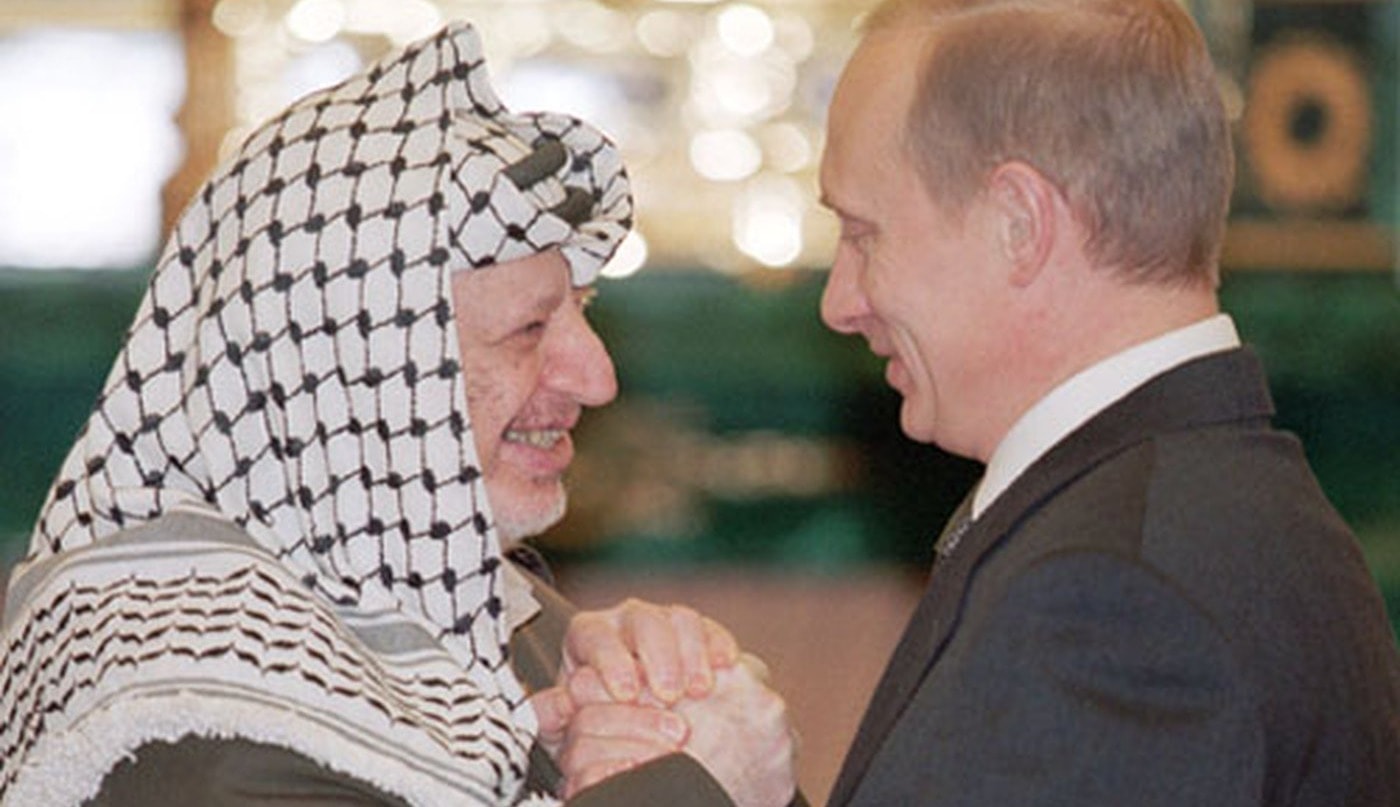Protests Escalate
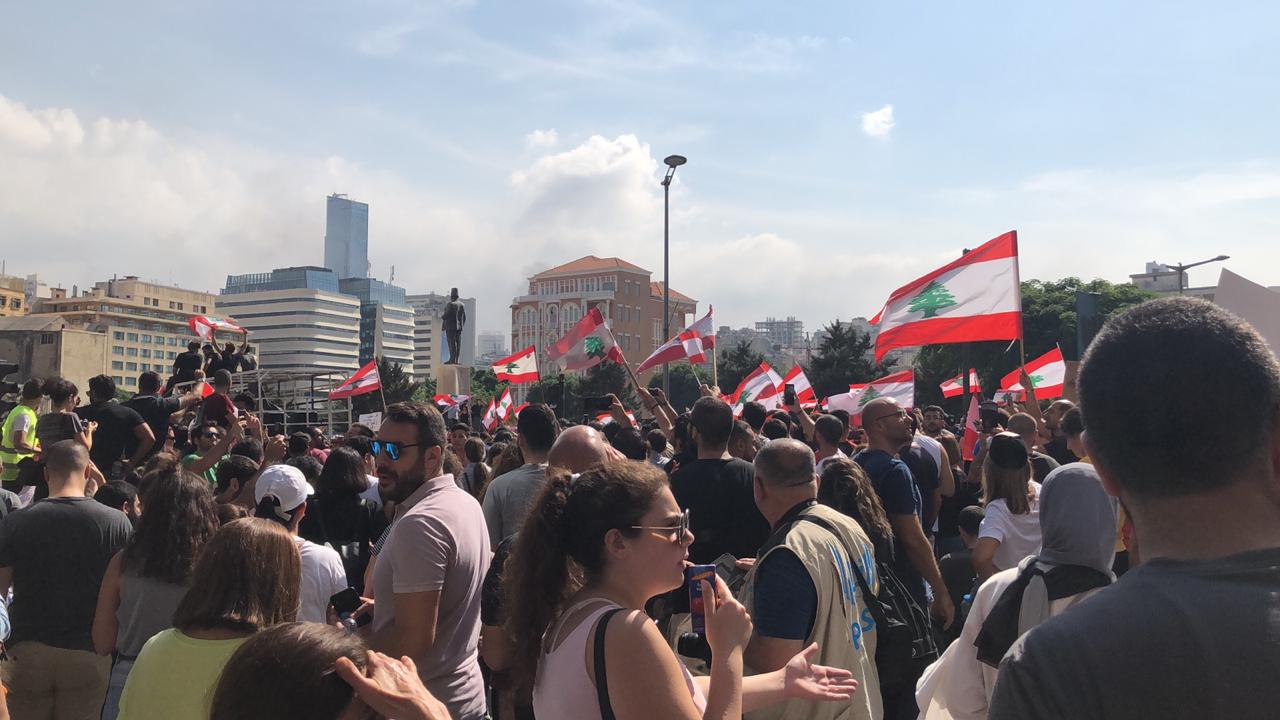
For almost two weeks now since the 18th of October, the Lebanese government has been facing a series of protests both in Lebanon and around the globe that arose following certain taxes the government was aiming to introduce including those on tobacco, fuel, social media and Whatsapp phone calls. However, although it arose from the aforementioned material issues, the protest has certainly not remained at that. The protest has now turned into an anti-government one, and instead of no taxes on Whatsapp, the protesters are now demanding a complete overhaul of the political system.
The significance of the ongoing leaderless protests is that regardless of sectarian differences, religious beliefs and political parties, everyone united to protest against the government and call for an uncorrupt, technocratic government to save them from the deepening economic crisis. Everyone has put their differences aside and united for the future of their country.
The protesters, who have taken to the streets, formed human chains and stopped ordinary life from going on in Lebanon, are calling for a government formed by technocratic elites who are skilled enough to pull the country out of the economic crisis it is further rolling into. They’re protesting against the current sectarian confessionalist political system which the government is based on. It is simply a system where the seats of the parliament are divided according to the majorities of sects and religious beliefs in multi-cultural Lebanon, a de jure mix of religion and politics. Political, institutional and decision-making power, therefore is divided among confessional communities, which makes it hard for the government to agree on reforms and deliver what they had promised to the people.
Hariri Resigns
On Tuesday, Lebanon’s Prime Minister Saad Hariri announced his resignation, only 9 months after the government had been formed, due to the pressures from the protestors on the streets following the Lebanese government’s failures in delivering economic and social reforms in order to improve life quality overall in Lebanon. Following his resignation, a sense of ‘calm’ appears to have taken the streets, yet this could be interpreted as simply a time of waiting for what is to come next.
The PM-less government now remains an ad hoc ‘caretaker‘ with limited and mostly administrative functions. If this government were to last (like many did before), a further political vacuum could take place leading Lebanon into decadence. On the other hand, if Michel Aoun was to nominate and form a polarised government, it could lead to further political (and even armed) conflict due to the need for reaching a political majority, while the legacy of the March 14 bloc consisting of the Christian Lebanese Forces and Lebanese Kataeb, the predominantly Druze Progressive Socialist Party still remains fresh.
Even if that was to be put into action, it would still remain a one-sided political system and not fulfil the protesters’ desires.
What is to come
The protesters are calling for such a change in the government and the system that, it can not be delivered either way. Neither by keeping the status quo which consists of the remains of today’s government that have already proven to the people that it can not supply what is needed, nor by the creation of a new, polarised government that simply reinforces the confessional system and its failures. The protesters on the streets yell “كلن يعني كلن” which translates to ‘All of them means all of them!’ as they express that they want all of the political sectarian powers gone.
“Every group should put a bit of water in their wine, starting with Hezbollah and Aoun, so that we reach consensus and shelter Lebanon from the impending financial crisis and start the reforms process that would satisfy the masses who have been demonstrating,” said veteran politician Marwan Hamadeh to Al Jazeera.
The collapse of Hariri’s government, for the protesters, can be interpreted as the first step in overthrowing the sectarian system as a whole, taking a step towards solving the problem at its core; although it also creates a possible security issue. Hezbollah and its allies will also have decisive powers in this ambiguous period, due to their popularity, yet now for Lebanon is not the time to consider leaders and the distribution of power according to names and groups, but to aim to create a unified front.
The protesters want a revolutionary technocratic government consisting of specialists that can pull Lebanon out of the crisis, making the power-relation between sects, religions, and identity redundant.
The country still remains in lockdown, with banks and schools closed, and what is to come to determine the future of Lebanon is ambiguous, yet if one thing is certain, it is that the protesters will not give up until they get what they want. Even if that means getting rid of ‘all of them’.
Editor’s Note: The opinions expressed here by Impakter.com columnists are their own, not those of Impakter.com – In the cover picture: The Lebanese flag on a hill Image Credit: Al Jazeera


